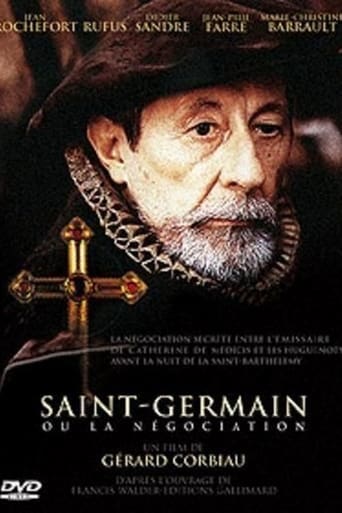

I am one of Corbiau's worst critics. I am always appalled at the damage he has done to French history and history in general with films like "Le Roi Danse" and "Farinelli" which vacillate between the afternoon hysterics of soap-opera and a pure excrement immersion. I was surprised that this TV film was almost dignified and respectful of its subject (with restrained acting) and did not make the viewer want to slit his wrists every five minutes. But, true to form, Corbiau could not resist his specialty: body fluids. In what may be his masterwork, he shows the principal character and his coachman having a double dump face to face on each side of the road, the hero wiping his ass with a Protestant religious text. In another scene - almost the next one after that - he has the hero continue his conversation with the Queen mother while she ostensibly goes to her cabinet to urinate rather noisily. I have to ask: How is our understanding of French history increased by showing these scenes? Or does the director simply have a thing for pipi and caca? No, really, I want to know!
... View MoreA rather broke but dedicated Catholic baron is sent by King Charles IX of France to negotiate with some Protestant representatives during the religious wars of the 16th century. His dedication, however, is more to his job and the success of his mission than to his young wife and family. The settings, the actual châteaux where the story took place; the dialogs, written in clear, pure classical French; the restrained but perfect acting make this film much more than another historical illustration. It shows, through the destiny of one man, how "reasons of state" will bring both satisfaction and bitterness, accomplishment and ruin, during the ill-fated bloody night of the St Barthelemy massacre (of which nothing is shown on screen).
... View More